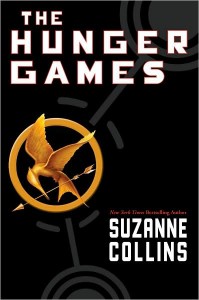Wondering what to get your friends and family? Give them the gift of English!
An ESL Podcast Premium or Basic Membership will help them learn English better and faster. They’ll get more vocabulary and language explanations, sample sentences, comprehension questions, cultural notes, and more.
Make your family and friends happy and support ESL Podcast by giving a Basic or Premium Membership today!
………
ON MONDAY
ESL Podcast 746 – Traveling Over the Holidays
In the Learning Guide: Get a full transcript (written version of every word you hear), vocabulary list and sample sentences, and comprehension questions.
In “What Else Does it Mean,” learn the other meanings of “at all costs” and “to think (something) out.”
In the “Culture Note,” learn about “Airport Lounges” in American airports.
“An ‘airport lounge’ is a special room or ‘suite’ (group of rooms) in an airport that only certain people have access to. Most lounges are owned by the airlines, and ‘frequent fliers’…” – READ MORE in the Learning Guide
…
ON WEDNESDAY
English Cafe 324
Topics: Stephen Foster and his songs; “ish” suffix; California casual; “If it be your will”
In the Learning Guide: Get a full transcript (written version of every word you hear).
In “What Insiders Know,” you will read about “Horseracing and the Daily Racing Form.”
“The song ‘Camptown Races’ mentioned in this English Cafe has long been ‘associated’ (connected) with horseracing. In fact, some racetracks’…” – READ MORE in the Learning Guide
…
ON FRIDAY
ESL Podcast 747 – Visiting a Ranch
In the Learning Guide: Get a full transcript (written version of every word you hear), vocabulary list and sample sentences, and comprehension questions.
In “What Else Does it Mean,” learn the other meanings of “to look the part” and “bit.”
In the “Culture Note,” learn about “Cowgirls in the Old West.”
“When people think about the ‘Old West’ (the lifestyle in the Western United States in the late 1800s), they often ‘picture’ (imagine; see images in their mind of) cowboys, but cowgirls…” – READ MORE in the Learning Guide


 More than 20 years ago – in 1988 – Bobby McFerrin wrote his song Don’t Worry, Be Happy. Before the year ended, the song had rocketed (risen quickly) to the top of the Billboard Top 100 Chart. The chart, published by Billboard magazine, is a list of the 100 most popular songs in the U.S. McFerrin’s song was the first a cappella (without instruments) song to ever become #1 on the chart.
More than 20 years ago – in 1988 – Bobby McFerrin wrote his song Don’t Worry, Be Happy. Before the year ended, the song had rocketed (risen quickly) to the top of the Billboard Top 100 Chart. The chart, published by Billboard magazine, is a list of the 100 most popular songs in the U.S. McFerrin’s song was the first a cappella (without instruments) song to ever become #1 on the chart.